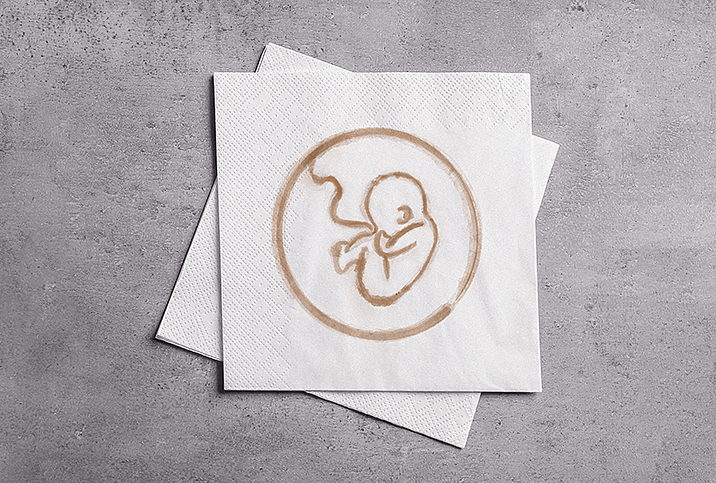Report Raises Doubts About Acetaminophen Use While Pregnant

Pregnancy: Those 40 long weeks of anticipation and excitement…and headaches, body aches, increased risk of urinary tract infections and any number of other not-so-exciting side effects.
The reality is, as much as you're loving your little bun in the oven, there are aspects of the experience that aren't a whole lot of fun. And when you add to that the fact that everything you put in your body is shared with your baby, the options for using medications to treat normal (and sometimes not-so-normal) pregnancy aches and pains are pretty limited.
But good ole over-the-counter acetaminophen, the trusty steed of the pharmacy aisle, has always been considered safe. Certainly, no doctor would recommend you overuse the painkiller, but in instances where you just can't shake a headache, or a fever has you laid up in bed, the typical recommendation during pregnancy has been to pop a couple of Tylenol and let the pills do their work.
"It's estimated that about 60 percent of pregnant women take Tylenol sometime in pregnancy. It's really the only pain reliever and fever reducer that is safer than other medications," said Daniel Roshan, M.D., FACOG, a renowned maternal-fetal medicine specialist with an expertise in high-risk pregnancies who practices in New York City.
Fortunately or unfortunately (depending on your perspective), time and research often changes long-held recommendations. And a new consensus statement from scientists is now suggesting more caution needs to be exercised regarding acetaminophen use during pregnancy. But before you run to your cabinet and toss your pills, here's what you need to know.
Acetaminophen during pregnancy: What the study said
Published in the September 23, 2021 issue of Nature Reviews Endocrinology, the "consensus statement" and "call for precautionary action" (as termed by the authors) was written by a team of 13 scientists—clinicians specializing in neurology, obstetrics and gynecology, and pediatrics, as well as epidemiologists, and basic scientists—looking at all known human and animal studies that have investigated the possible outcomes of acetaminophen use during pregnancy.
The reality is, acetaminophen has many known side effects in child and adult populations—specifically, a high incidence of acute liver failure that's usually due to overuse (intentional or unintentional), abuse, or chronic use or misuse.
And while acetaminophen has long been promoted to pregnant women as a safe option for aches, pains and fevers, the study authors cited the widespread use of the medication in pregnant populations and an increasing incidence of "children with cognitive, learning, and/or behavioral problems," and increased incidences of urogenital and reproductive disorders, as a reason to take a harder look at the medicine's purported safety.
The action (taking acetaminophen) and outcome (various neurological, urogenital or reproductive disorders) could be linked because acetaminophen is a known endocrine disruptor. And when a substance disrupts the fetal endocrine system, what it's potentially doing is interfering with hormone activity that's essential for neurological, urogenital and reproductive development.
Of course, understanding how, when and why this might be taking place is key to knowing whether the risk is real and whether recommendations for use need to change. And there's simply not much solid information on whether there's a safe level of acetaminophen use, or at what point during pregnancy (if any) use is more (or less) concerning.
One thing the study authors noted is there appears to be a dose-response relationship with all potential negative outcomes. This means the more you use, the higher the potential for problems, assuming there aren't other, uncontrolled-for complicit factors that could be contributing to the negative outcomes. And, as far as neurological effects are concerned, the risk appears to be higher in the second and third trimesters.
Essentially, the consensus statement and the studies it looked into did not come out and definitively state that acetaminophen is the sole cause or a major contributor to any specific negative outcome. That said, the authors argue there's enough evidence to cause concern, and they say more research is needed.
The consensus statement recommendations
First and foremost, the study authors call for more research. Correlation does not mean causation, so just because there may be an indication that acetaminophen use during pregnancy could be linked to a diagnosis of ADHD, autism or other disorders, that does not mean that acetaminophen use causes these disorders.
Specifically, studies should be performed to control for confounding factors that may play a role in outcomes: for instance, knowing the reasons pregnant women are using acetaminophen, whether pregnant women have genetic factors that could play a role in possible diagnoses, and how often, how much and when pregnant women are using acetaminophen during or post-pregnancy.
Beyond that, the authors recommend pregnant women approach acetaminophen use with caution. Specifically, they state:
- Pregnant women should forgo APAP (acetaminophen) use unless medically indicated.
- Pregnant women should consult with their physician or pharmacist if they are uncertain whether use is indicated and before using on a long-term basis.
- Pregnant women should minimize risk by using the lowest effective APAP dose for the shortest possible time.
Really, it's all about common sense
While the headlines regarding this review have made waves, for most OB-GYNs, the takeaway is that it's still "business as usual." Most doctors have already been making the recommended precautions—it would be highly unusual for a doctor to recommend any patient take more medicine, whether over-the-counter or prescription, than absolutely necessary. It's just a matter of heightening the call for research to get more definitive answers.
"We can't make much out of a single review article and draw a drastic conclusion that Tylenol is harmful to the growing fetus," said Roshan.
"Of course, [acetaminophen] should be used only if it's really needed. But without it, what other choices do pregnant women have who have terrible headaches, pain, or fever and cold symptoms?" Roshan added.
It's not a bad thing to check yourself and ask whether or not you really need to pop that Tylenol.
Additionally, Roshan pointed out that fever itself is a known teratogen, which is a factor that can cause malformation of a fetus. When a woman is faced with an infection or an illness accompanied by a fever, doctors are going to prescribe whatever line of medication that's known to be safe to try to reduce the fever. Currently, acetaminophen is that option.
That said, it's not a bad thing to check yourself and ask whether or not you really need to pop that Tylenol. If you're in pain, have a fever or have been told to take it by your doctor, by all means, do so. But if you think your headache may go away on its own with a hot shower and some extra water, it might be worthwhile trying a few other possible remedies before resorting to a pill.
And remember, as Roshan said, roughly 60 percent of all pregnant women take acetaminophen at some point during pregnancy. (I, for one, was one of them—I took acetaminophen a few times in response to wicked urinary tract infections that led to high fevers and extreme body pain. I don't feel bad about having done so.)
The vast majority of the babies born to mothers who took Tylenol while pregnant are born completely healthy and without any potentially associated problems. Does that mean scientists should quit studying the possible implications of acetaminophen use? Of course not. But there's still a lot of research to be done before women should stop using acetaminophen as recommended by their doctor.
Roshan said specifically, if scientists want to draw definitive conclusions between acetaminophen use and any of the negative outcomes cited (for instance, autism), a double-blind, randomized clinical study is needed, and it has to be divided by trimester.
"Until such a study is published, we should continue our current clinical practice," he advised.




















